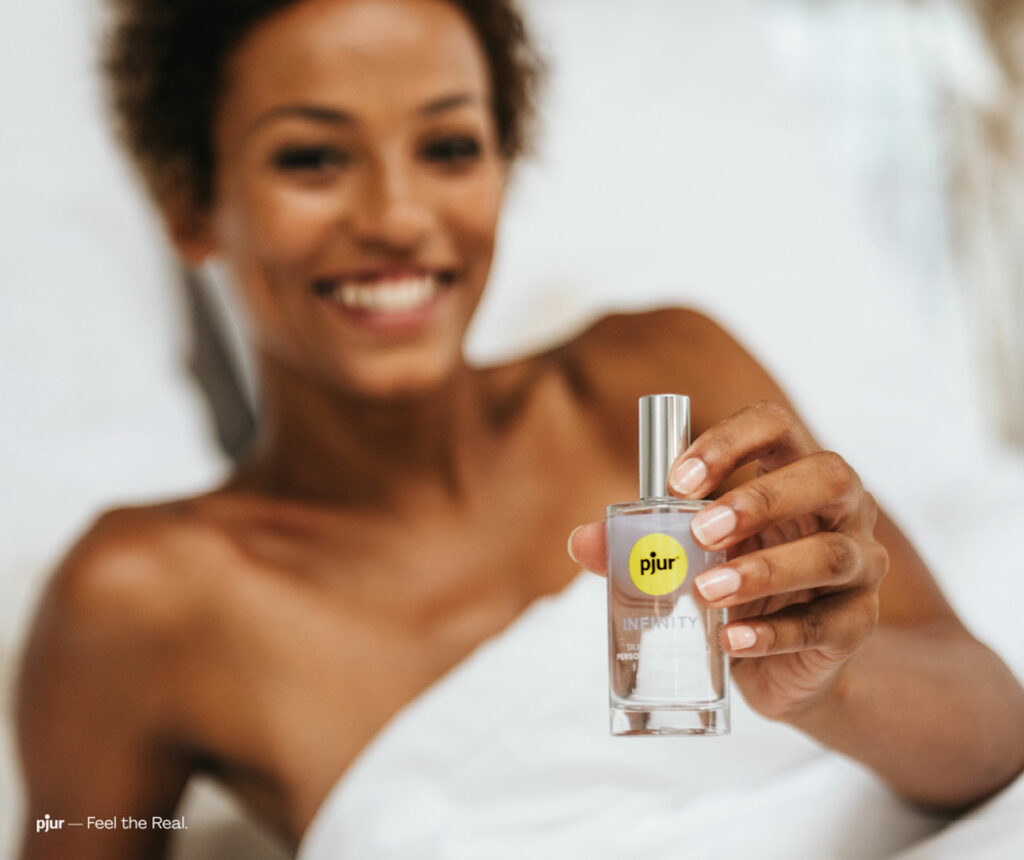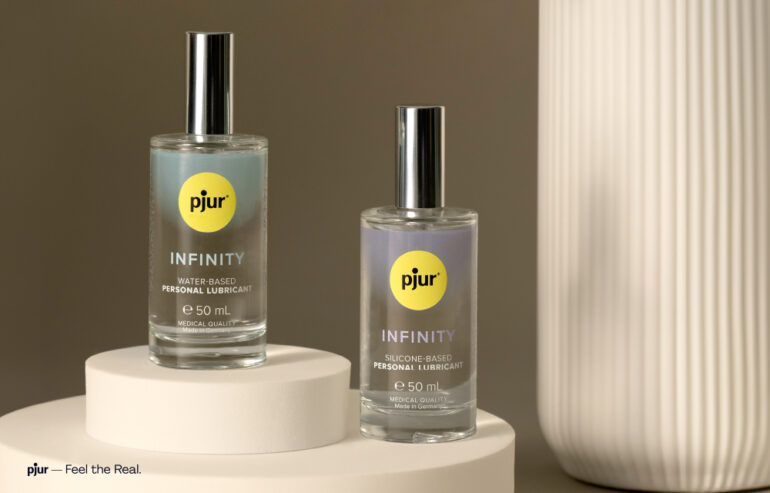
Did you know that personal lubricants are now classified as medical devices, and from 2024 there will be even stricter regulations about what can and can’t be called a “personal lubricant” and sold as one? Over the course of the year, we tried to explain the whole issue to make it that bit clearer for you and help you with buying personal lubricants. And now, with 2024 just around the corner, we want to sum up for you again what exactly is changing for personal lubricants and their manufacturers, and what you as a consumer need to know from next year.
- Personal lubricant – a medical device!
- Eyes peeled when buying personal lubricants – From 2024 it’s worth looking a bit closer
- What manufacturers of personal lubricants must do from mid-2024
- What is improving for you as a consumer
Personal lubricants – a medical device!
True, you can pick up many brands of personal lubricant in any drugstore and even online, and many people see them as cosmetics rather than medical devices. But if you think about it, personal lubricants are generally introduced into the body and can stay there a while, so it makes complete sense for them to be classified as a medical device. Cosmetics are also defined as products that are intended for external use. Their purpose is to clean, perfume or protect the body, and change the body’s appearance or smell. Naturally cosmetics are also strictly regulated and must indicate their ingredients on the label. There are also other information requirements for cosmetic products. Personal lubricants are introduced into the body though, and are not only for external use. This makes them a medical device and subject to considerably stricter regulations.
Medical devices are subdivided into four risk classes. This classification is based on the area of application, duration of application, anatomical position, and the resulting application risk. Products are rated from Class I through Class III, from no risk present through high risk and risk of danger.
Personal lubricants are classified as risk Class IIb, and are therefore on equal footing with defibrillators, for example. In the past, personal lubricant manufacturers didn’t need to be certified according to the MDR (European Medical Device Regulation) to be able to sell products as personal lubricants or creams. From mid-2024 this will change, and all personal lubricant manufacturers that do not have MDR certification, and whose personal lubricants or creams therefore do not meet the high requirements of the MDR, may no longer sell these products.
You can find out more about what the other classes are, and which products come under them and why in this blog post. As a consumer, you can only benefit from this issue. If you buy personal lubricants that you use in your intimate area, you can now be sure that they are quite safe for you and meet the high standards of the MDR. Stringently reviewed, certified quality, excellent compatibility, and guaranteed safety. So, make sure you keep your eyes peeled, particularly during the transition period and from May 2024 when buying a personal lubricant.

Eyes peeled when buying personal lubricants – From 2024 it’s worth looking a bit closer
From mid-2024, not all personal lubricants that today have “personal lubricant” on the label will be called a personal lubricant. But you shouldn’t rely on this alone. Because it is a medical device, a personal lubricant label must include the MD and CE marks as well as a use-by date. There must also be a four-digit number for the notified body with the CE mark.
You should also look closer at the text at the back of the label on the personal lubricant bottle. The intended use must be indicated here, for example “for daily use.” Class IIb medical devices must state whether the personal lubricant is compatible with other products. For personal lubricants, this is specifically their compatibility with condoms. Warning and safety notices must also be given on a medical device. With personal lubricants this includes “Avoid contact with eyes and irritated skin.” We have illustrated how that should look on the label of a personal lubricant bottle in greater detail in this post.
So, if you want to buy your favorite personal lubricant now over the festive period or in 2024, then check that all this information is on the personal lubricant bottle. Because all this information should be there before a product can even be called “personal lubricant” and be safe for you to use. With our pjur products, you can be sure that we satisfy all the requirements of the MDR. pjur passed the MDR initial audit back in August 2022 and received confirmation of conformity according to the MDR medical device regulation (EU) 2017/745. pjur is one of still very few personal lubricant manufacturers who have received the certification and therefore can continue to manufacture and sell personal lubricants for you.
What manufacturers of personal lubricants must do from mid-2024
For manufacturers who still don’t have this certification, this transition represents an enormous challenge. They need to comply with the MDR directives to be able to sell their personal lubricants as “personal lubricants” in the future, and convince consumers that their products are safe. If they haven’t yet done that, they will struggle to get it done by mid-2024. The directives are strict, the approval process extensive and time-consuming, and the products subject to constant checks. The transition period for implementing the new medical device regulation (MDR) runs until May 2024. The MDR is the successor of the current medical device directive (MDD). The MDR is bringing in significantly stricter regulation for medical devices. Personal lubricants are now classified as Class IIb medical devices because they are introduced into the body. Manufacturers of personal lubricants that do not have this certification by May 2024 may no longer call their products “personal lubricants” after this point. Presumably, not all manufacturers will be able to continue to sell personal lubricants. We are still waiting to see who this does and does not impact. As we’ve already said, pjur is one of the certified manufacturers. So, you can be safe with us! 😊

What is improving for you as a consumer
If (as we hope 😉), you have always used our pjur personal lubricants in the past, then for the time being, you will not notice any changes. You already use one of our safe personal lubricants that meet the high standards. But if you usually go for another brand (which is also fine 😊), then you need to be a bit more careful. Is all the information mentioned above included on your favorite bottle? Is your chosen personal lubricant brand already one of the certified manufacturers?
To sum up, the new regulations are only going to improve things for you. Because when it comes to your intimate area, you should only use the best – a safe product that doesn’t mean making compromises. And as personal lubricants in the future will be subject to even stricter controls, you will be even safer going forward. It doesn’t matter whether you use a personal lubricant because of vaginal dryness, to massage your partner, simply to improve your sex life, or to boost your well-being during sex – you no longer need to worry about the quality of your personal lubricant in the future. Simply check what is on your personal lubricant bottle and whether your preferred manufacturer is certified.
If you are already a fan of personal lubricants, then you know exactly what you need to look out for when buying your next bottle from 2024 (if not today 😉). And if you were a sceptic before, because personal lubricants are used in the intimate area and therefore go inside your body, now you can rest assured. Because from 2024, products can only be called “personal lubricants” if they meet the strict directives of the MDR and the Class IIb medical devices. So, concentrate on your sex life free from worries and just enjoy yourself!

